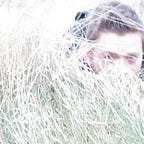On Musical Genre (from 2011)
I’ve always been fascinated by different musical genres. This used to be driven by a desire to create my own musical niche but lately — sadly maybe — it’s more of an academic exercise.
It is, however, a pretty fascinating question. Most people with a reasonable knowledge of modern music could distinguish dubstep from drum and bass or house from techno but do we ever really stop to think why?
These thoughts were triggered again this summer by the emergence (for me, anyway) of both footwork and moombahton, two recognised “new” genres of music.
The latter, in particular, was instructive. Moombahton was apparently created when DJ / producer Dave Nada slowed down the Afrojack remix of the Silvio Ecomo and DJ Chuckie song Moombah to 108 beats per minute to play to a crown that had been enjoying the previous DJ’s reggaeton set.
Liking the results, Nada then went off to the studio to record a five-track EP that echoed the slowed down Dutch house sound.
But why on earth would this constitute a new genre? And, if it does, how can we all create our own genres?
The key lies in slowing down the drums. Musical genres — and I’m largely talking about dance music here, surely the most genre conscious of any type of music — largely come down to the drums and a combination of speed and style.
Of course, it’s not just that — most music genres have their own particular palette of sounds too. But consider: what differentiates the bass-line-obsessed dubstep from the similarly bass-line-obsessed drum and bass but the drums?
Similarly what fundamental difference is there between 174 BPM hard house and 174 BPM drum and bass, other than the former’s straight up four to the floor beats and the latter’s shuffling step?
I should probably put in a massive disclaimer here: many times it just isn’t that simple. House and (US) garage, for example use the same sounds and have largely identical beats and are only separated by garage’s use of “proper” songs with a recognised verse / chorus structure.
Nevertheless, the dance spectrum can still be largely charted by BPM, from hip hop’s low 80s, to house at 125, techno at 135, drum and bass at 174 and gabber at 200+.
What’s more, I’m prepared to bet that if you sped up a techno record to 174 BPM and added drum and bass percussion most people would identify it as drum and bass, while if you took the same record, slowed it down a little and added a breakbeat it would go down as breakbeat / breaks / whatever they’re calling it these days.
How then to create your own musical genre? Again, the example of moombahton is telling: by slowing down a particular track enough Nada “created” something with its own individual feel.
It won’t always work, of course, but in this case he lucked out.
But so what? If it had just stopped there we would be talking about one slowed down song (or rather, we probably wouldn’t be talking about it, but you get the idea) rather than a whole new genre.
But it didn’t stop there. Nada liked the sound and went out to re-create it. And that, effectively, is the key to creating a genre: create one slightly odd song and it’s just that; create five slightly odd songs that all sound the same, give them a name, and you have a new genre on your hands.
But how to create something “slightly odd”? Your easiest way by far is to play about with the drums that define a genre. So, slow something down so it sounds a bit weird, à la moombahton. Or speed something up, as the old rave DJs did to house, hip hop and funk records to create drum and bass.
Now set out to re-create the slowed down / speeded up original. You won’t manage it, of course, but in doing so the sound of your own genre — or as close as you’re likely to get to it — should gradually become apparent.
Speed up reggae to 240 BPM, for example. Or slow down techno to 60 BPM. It might not sound very good. But it will undoubtedly sound different.
Now give your nascent genre a name and get spreading the word.
Chances are it will come to nothing — but who knows? 20 years from now you too could be earning large money from piss poor DJ sets, raking in the bookings as the godfather and general keeper of the flame of your own particular genre.
And that, surely, beats working for a living.
